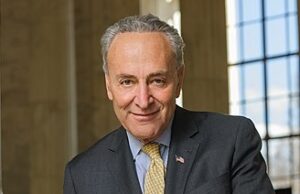Main Street Needs a Strong, Impartial Secondary Market
Washington, D.C. – March 1, 2011 – (RealEstateRama) — The Independent Community Bankers of America (ICBA) told Congress today in a written statement that Main Street community banks need a financially strong, impartial secondary market that provides equitable access and pricing to all lenders regardless of size or volume. ICBA also outlined its own proposal for secondary mortgage market reform.
“Community banks serve the mortgage credit needs of rural areas, small towns and suburbs across the nation and the secondary markets are a significant source of funding that support this lending,” ICBA said in the statement. “Private entities will succeed Fannie Mae and Freddie Mac; that much is all but settled. Still to be determined is what form those entities will take – instruments of Wall Street or cooperatives in which community banks and large banks are equally represented and communities and customers of all varieties are served.”
With regard to the Administration’s recent report to Congress, “Reforming America’s Housing Finance Market,” ICBA said it was encouraged to see the Administration recognize that smaller lenders and community banks serve their communities more effectively than larger lenders. Access to credit for these communities, along with the related imperatives of preserving a competitive market for credit and minimizing consolidation, are all criteria the Administration uses in evaluating proposals for remaking the government’s role in the secondary mortgage market. In this respect, we support the analysis provided by the Administration.
ICBA went on to propose the following for secondary mortgage market reform:
- Cooperative governance would ensure broad access and deter excessive risk taking – Fannie and Freddie would be restructured as cooperative entities owned by mortgage originators who purchase stock commensurate with their loan sales to the co-ops. This is similar to the capitalization of the Federal Home Loan Banks (FHLBs) and provides a capitalization source that can be adjusted based on market conditions and risk profile and performance of the co-ops’ book of business. Members would have an incentive to transfer only soundly underwritten loans to the co-ops because any losses would adversely affect their capital investment. The co-ops would be governed on a one-company-one-vote basis. Big banks would not be allowed to dominate the new co-ops. The advantage of this form of governance is that all co-op members would enjoy open and equal access and benefits in terms and pricing, regardless of their origination volume.
- A limited scope of conservatively-underwritten products would be eligible for sale to the co-ops – The co-ops would guarantee a limited range of conservatively underwritten products: 15-and 30-year fully amortizing mortgage loans that meet the definition of “qualified residential mortgage” (QRM) and adjustable rate mortgage loans that meet the QRM definition, would be exempt from risk retention requirements. Loans that fall outside of the QRM definition would require risk retention by the originator and additional risk to the co-ops would be priced accordingly. These provisions would shield the co-ops from excessive risk. The co-ops would only be engaged in the secondary market and would be barred from operating in the primary market. They would not unfairly compete with mortgage originators.
- A privately-capitalized guarantee fund would insulate taxpayers – Mortgage-backed securities issued by the co-ops would be guaranteed by a fund capitalized by co-op members as well as third party guarantors. Resources would be set aside in good times to prepare for challenging times. The government would provide catastrophic loss protection, for which the co-ops would pay a premium. This guarantee, fully and explicitly priced into the guarantee fee and loan level price, would not only provide credit assurances to investors, sustaining robust liquidity even during periods of market stress, but – a point less often noted – it would enable the co-op securities to be exempt from SEC registration and trade in the “to-be-announced” (TBA) forward market.[1] Without the TBA market, which allows lenders to sell loans forward before they are even originated and to hedge their interest rate risk during the rate “lock” period, the 30-year fixed rate loan as we know it and on which our housing market is based will become a rarity. Though the co-ops would be ultimately backstopped by the government, private capital from members and private reinsurers would absorb all but catastrophic losses; government reinsurance funds and ultimately the taxpayer would be well insulated.
- Easy transition from Fannie Mae and Freddie Mac – The infrastructure of Fannie and Freddie – including their personnel, systems, automated underwriting engines – would transfer to the new co-ops. This is an essential feature of the proposal as it would minimize disruption in the market and reduce the cost of the transition to the new system. The outstanding debt and securitizations of Fannie and Freddie would maintain the current guarantee.
- Strong supervision – The Federal Housing Finance Agency (FHFA) would regulate and supervise the co-ops. FHFA would be responsible for setting and monitoring capital levels based on market conditions, portfolio performance and overall safety and soundness. FHFA would approve all new mortgage products purchased by the co-ops.
For more information about this important issue, and to view ICBA’s written statement, visit http://www.icba.org/. To speak with a staff expert, contact Aleis Stokes at 202-821-4457
Media Contact
Ann Chen
(202) 821-4346
Media Contact
Aleis Stokes
(202) 821-4457

















